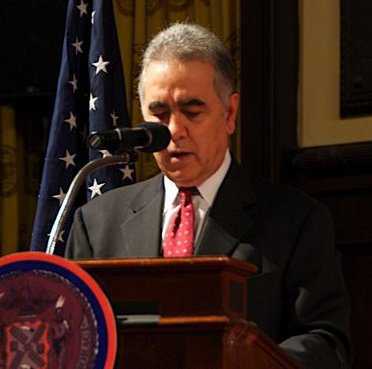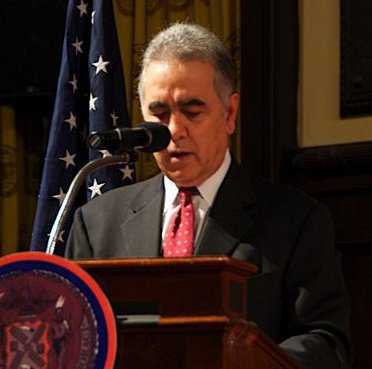
The federal Court of Appeals issued a shocking decision last week. In a unanimous ruling, it struck down a California law that had allowed heirs of Armenian Genocide victims to sue life insurance companies for unpaid claims.
Acknowledging its reliance on the “rarely invoked doctrine” of “field preemption,” the Court judged the state law to be unconstitutional, claiming that it intruded into the federal government’s foreign policy prerogative.
The Appeals Court thus annulled a law passed by the California legislature in 2000, which had extended first to 2010 and then to 2016, the deadline for Armenian Genocide heirs to sue life insurance companies. On the basis of that law, California attorneys filed lawsuits against the New York Life and French AXA insurance companies. Both lawsuits were settled out of court for a total payment of $37.5 million.
In 2003, Armenian plaintiffs filed a class-action lawsuit in U.S. federal court against German life insurance companies. Rather than fulfilling their long overdue contractual obligations, these companies sought the lawsuit’s dismissal, arguing that the reference to the Armenian Genocide in the State law was an encroachment on the federal government’s foreign policy powers. After several appeals, a panel of 11 federal judges dismissed the lawsuit against the German companies on February 23, 2012. This decision, however, does not undo the settlements reached earlier with New York Life and AXA.
I believe the Appeals Court’s decision is highly flawed for the following reasons:
1) The Court took the unusual position that the State law constituted an intrusion into the federal government’s foreign policy domain, even in the absence of any conflict between the two. In fact, the State of California and the federal government are in agreement on the genocide issue, since the House of Representatives recognized the Armenian Genocide in 1975 and 1984, Pres. Reagan acknowledged it in a Presidential Proclamation in 1981, and most importantly, the U.S. Justice Department cited the Armenian case as an example of genocide in an official report submitted to the World Court in 1951.
2) The Appeals Court overstepped its judicial bounds by paying undue attention to Turkish denials, pressures, and blackmail, and charging that the California statute “imposes the politically charged label of ‘genocide’ on the actions of the Ottoman Empire (and, consequently, present-day Turkey) and expresses sympathy for ‘Armenian Genocide victims.’” This assertion is totally untrue, as the California law makes no reference to “present-day Turkey.” Delving further into political arguments rather than sound legal judgments, the Appeals Court quoted from newspaper articles — that were not part of the court record — to illustrate Turkey’s angry reaction to the French bill on penalizing genocide denial and Ankara’s rejection of the genocide label.
3) The Court could have severed the reference to genocide from the California statute, while keeping valid the legitimate demands of life insurance claimants, since the purpose of the lawsuit was the recovery of insurance benefits, not asserting genocide.
Armenians should not be discouraged and not give up the struggle for their legitimate rights, despite this temporary legal setback. Here are some possible steps that could be taken to remedy the situation:
1) File an appeal to the U.S. Supreme Court, even though the High Court hears only a very small percentage of the cases submitted to it.
2) Ask the California legislature to pass a new law that would broaden the category of possible claimants, in order to overcome the Appeals Court’s objection that the existing law is “for a narrowly defined class of claims.”
3) Lobby the U.S. Congress to pass similar legislation allowing lawsuits against delinquent insurance companies.
4) Launch a new Armenian political initiative at the federal level, seeking the establishment of a “Presidential Advisory Commission on Armenian Genocide Assets,” similar to the existing commission on the Holocaust, which would use U.S. governmental channels rather than the courts to recover genocide-era assets.
5) Embark on a worldwide campaign to protest and boycott German insurance companies that refuse to live up to their financial and moral obligations. Stage demonstrations in front of German companies’ offices in different countries until they realize that they would lose more business by ignoring the Armenian claims than paying the amounts owed to heirs of life insurance beneficiaries. Furthermore, Armenians must demand that Germany, Turkey’s ally during World War I, passes a law mandating that German companies pay delinquent insurance claims.
Clearly, the pursuit of Armenian demands is more of a marathon than a sprint! Armenians must persist in their struggle and overcome all obstacles until their long overdue quest for justice is realized.






